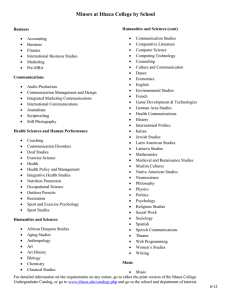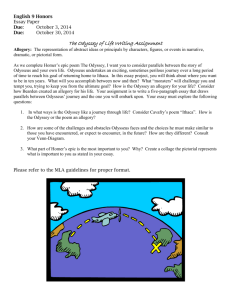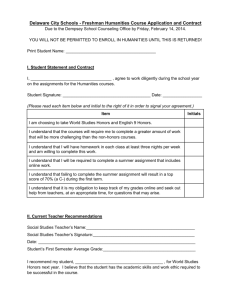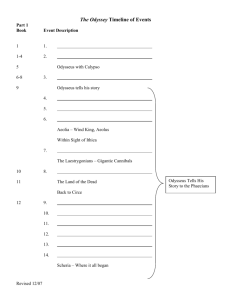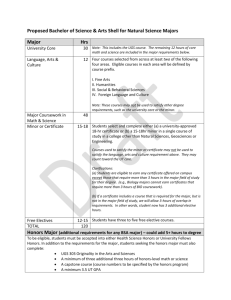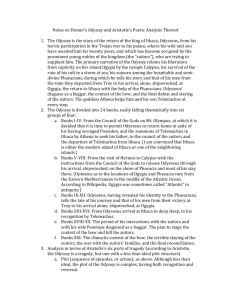Honors Humanities
advertisement
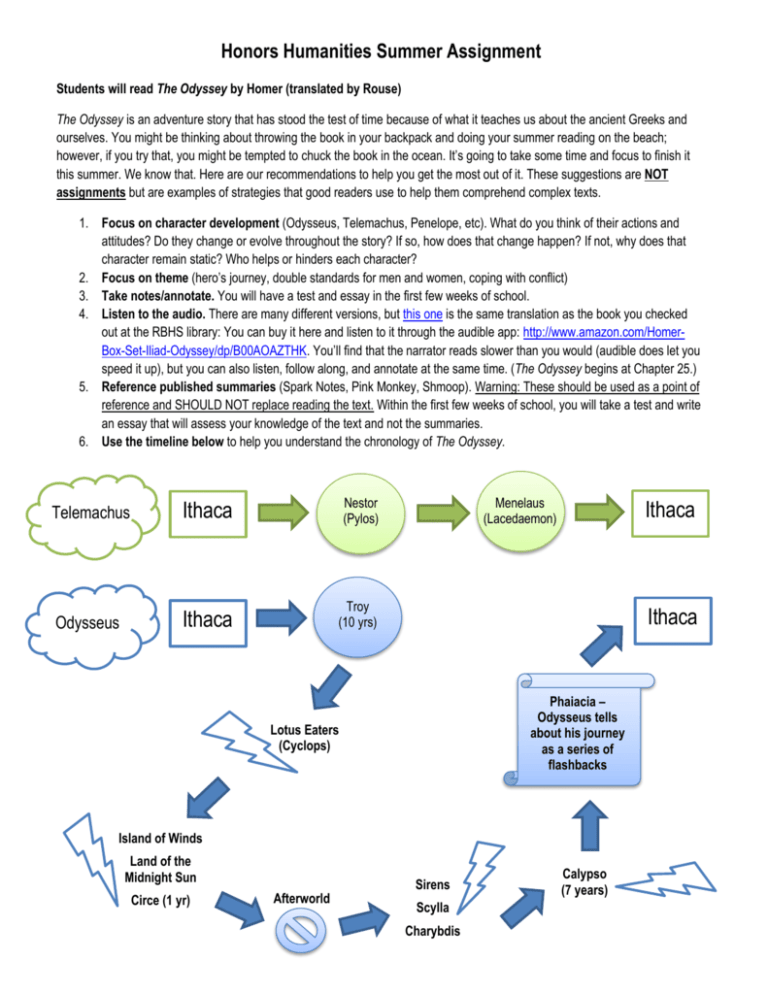
Honors Humanities Summer Assignment Students will read The Odyssey by Homer (translated by Rouse) The Odyssey is an adventure story that has stood the test of time because of what it teaches us about the ancient Greeks and ourselves. You might be thinking about throwing the book in your backpack and doing your summer reading on the beach; however, if you try that, you might be tempted to chuck the book in the ocean. It’s going to take some time and focus to finish it this summer. We know that. Here are our recommendations to help you get the most out of it. These suggestions are NOT assignments but are examples of strategies that good readers use to help them comprehend complex texts. 1. Focus on character development (Odysseus, Telemachus, Penelope, etc). What do you think of their actions and attitudes? Do they change or evolve throughout the story? If so, how does that change happen? If not, why does that character remain static? Who helps or hinders each character? 2. Focus on theme (hero’s journey, double standards for men and women, coping with conflict) 3. Take notes/annotate. You will have a test and essay in the first few weeks of school. 4. Listen to the audio. There are many different versions, but this one is the same translation as the book you checked out at the RBHS library: You can buy it here and listen to it through the audible app: http://www.amazon.com/HomerBox-Set-Iliad-Odyssey/dp/B00AOAZTHK. You’ll find that the narrator reads slower than you would (audible does let you speed it up), but you can also listen, follow along, and annotate at the same time. (The Odyssey begins at Chapter 25.) 5. Reference published summaries (Spark Notes, Pink Monkey, Shmoop). Warning: These should be used as a point of reference and SHOULD NOT replace reading the text. Within the first few weeks of school, you will take a test and write an essay that will assess your knowledge of the text and not the summaries. 6. Use the timeline below to help you understand the chronology of The Odyssey. Telemachus Ithaca Nestor (Pylos) Odysseus Ithaca Troy (10 yrs) Menelaus (Lacedaemon) Ithaca Ithaca Phaiacia – Odysseus tells about his journey as a series of flashbacks Lotus Eaters (Cyclops) Island of Winds Land of the Midnight Sun Circe (1 yr) Afterworld Sirens Scylla Charybdis Calypso (7 years) Honors Humanities 1-2 Course Overview Recommendations: A or B in Honors or high B or A in regular English STRONG work ethic (If you are willing to do the work, you WILL do well in this course.) Overview: Using the texts Culture and Values Volumes 1-2, we will take a chronological journey through time exploring various art periods. We begin the year with the Ancient Greeks and end with the Modern Era. Although there is a substantial focus on literature, we study many different aspects of the humanities including PAINITING, ARCHITECTURE, SCULPTURE, MUSIC, and PHILOSOPHY. We also explore the historical context for each art period. This is especially helpful for those students considering APEC for next year. In addition to the textbook, we will also read medieval literature, a Shakespearean comedy, and supplemental literary texts. Workload: 3 major essays each semester Various creative projects (with several presentations) An average of 5-10 pages of notes a night (from textbook) Support: Honors Humanities tutors meet with Humanities students 6 times in the first semester to help with essay-writing and course expectations. **If you have any questions, feel free to come by room E-3 (Mrs. Kravchak) or E-6 (Mrs. Montgomery) for more information.**

